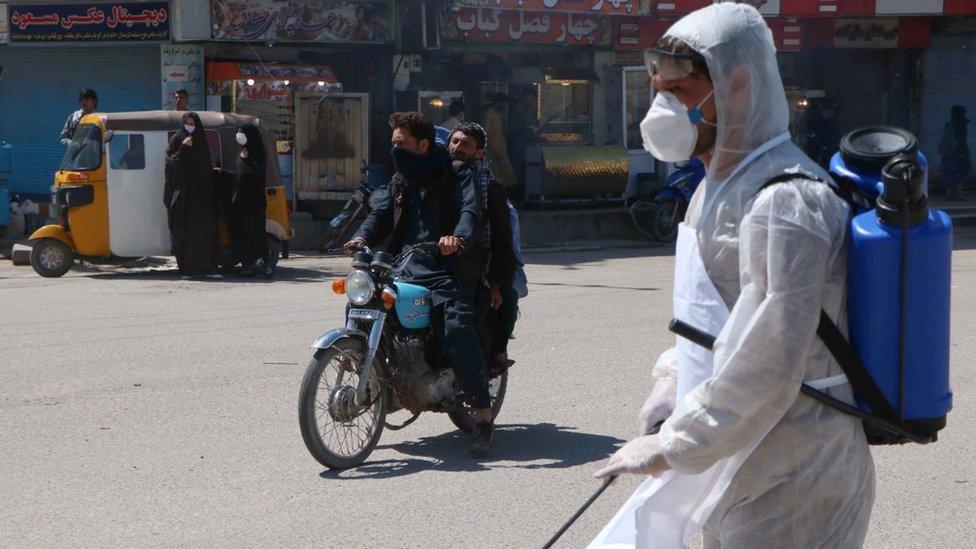Afghanistan and Taliban begin direct talks with aim of prisoner swap
- Published

There are fears coronavirus may be more widespread in Afghanistan than known
Afghanistan has begun its first face-to-face talks with the Taliban on exchanging thousands of prisoners.
Details of the initial meeting in Kabul emerged on Wednesday, ahead of a planned second day of talks, as Afghans observed tight restrictions on movement because of the coronavirus pandemic.
Under a US-Taliban deal, the government will free 5,000 Taliban prisoners, while the militants will release 1,000.
The talks took place against a backdrop of continuing violence in the country.
Authorities blamed the Taliban for an explosion in the southern province of Helmand on Wednesday that killed eight civilians, including several children.
How much progress has been made in talks?
The prisoner swap had been due to take place in early March, as part of a US-Taliban deal signed on 29 February, but there have been a series of setbacks. Until Wednesday, the two sides had only met by video conference.
With talks due to resume for a second day on Wednesday, Afghanistan's Office of the National Security Council said that progress had only been made so far "on technical matters".
The talks were overseen by the International Committee of the Red Cross (ICRC) and the focus was on the release of security force and national defence captives as well as Taliban prisoners, the ICRC said.
Is peace with the Taliban possible?
Taliban spokesman Zabihullah Mujahid said the meetings did not amount to negotiations, telling AFP: "There will be no political talks there". The US Secretary of State, Mike Pompeo called the beginning of the talks "good news".
How big is Afghanistan's coronavirus problem?
Afghanistan has recorded almost 200 cases of Covid-19, largely in the west of the country in Herat province. Four people have died. Testing is not widespread in the country.
Restrictions have been placed on movement both in Herat and Kabul province in an attempt to stem the spread of the outbreak. There have been reports of panic buying and shortages of essential goods.
The Taliban had been due to send a large team to the Kabul talks, but in the end sent a three-man delegation because of the virus outbreak. A spokesman for the militant group said the trio would monitor the prisoner release process and take the necessary technical measures.
Though US troops began withdrawing last month under the terms of the deal with the Taliban, movement on the prisoner swap has been slow because of disagreements between President Ashraf Ghani and his main political rival Abdullah Abdullah.
- Published12 August 2022
- Published25 March 2020